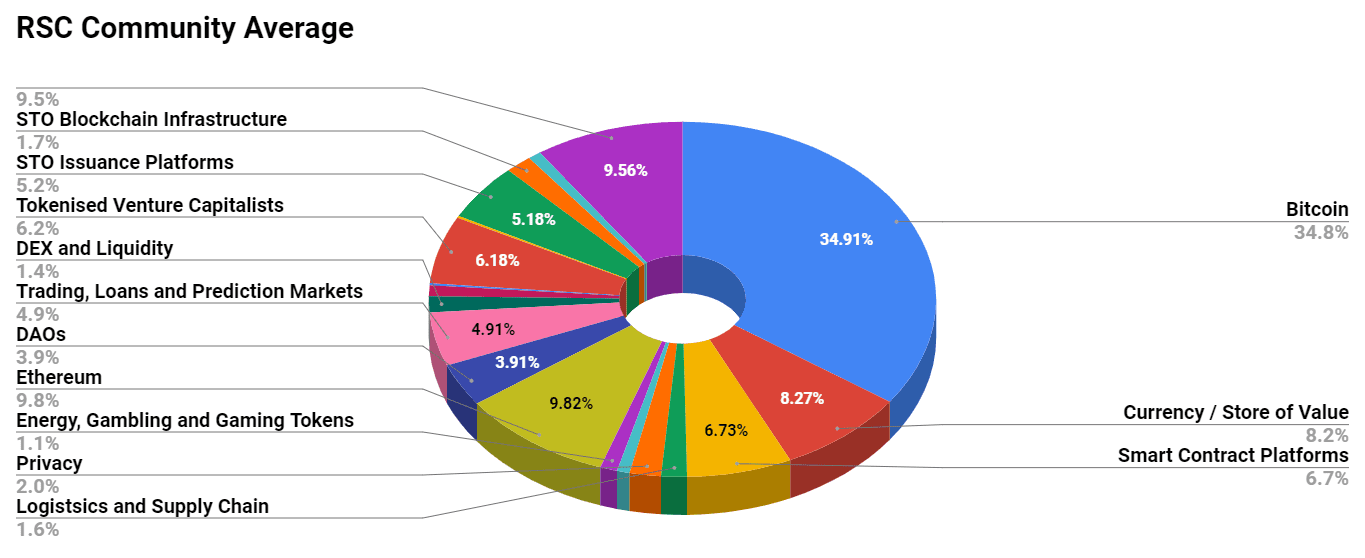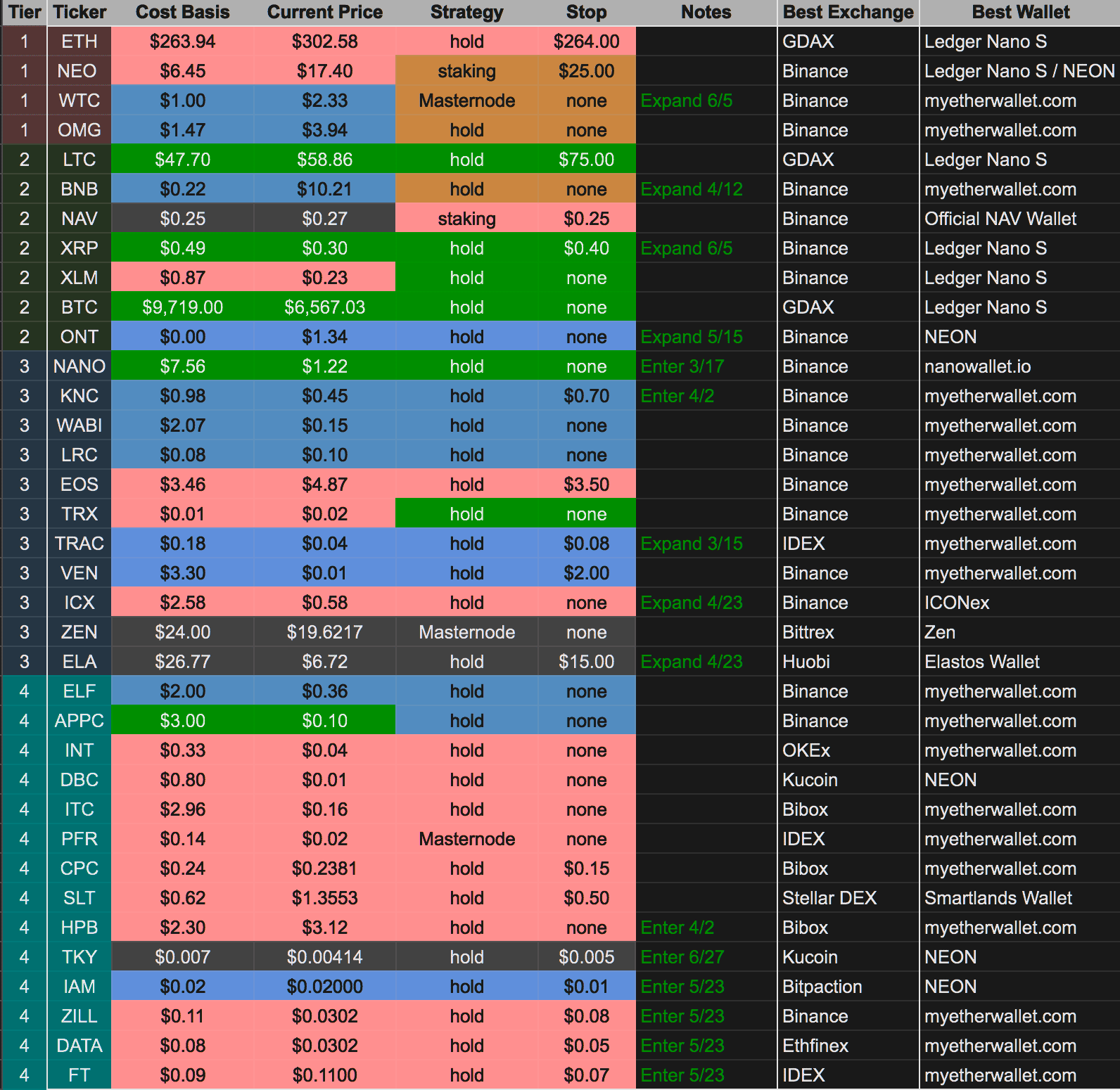Crypto Market Commentary
16 October 2019

Doc's Daily Commentary
The 10/9 ReadySetLive Update with Doc & Mav is listed below.

Mind Of Mav
Trust Vs. Trustless
Let’s talk about trust.
One of the signature aspects of blockchain technology is that it is “trustless”.
‘Trustless’ has become a rallying cry for Bitcoin evangelists, focusing public attention on the fact that Bitcoin enables P2P transactions without the participation of a trusted third party acting as an intermediary.
Bitcoin makes it possible to conduct money transfers without intermediaries. Intermediaries who could otherwise gain control over funds in a transaction, censor transactions or act as points of failure. Does this give grounds to assert that Bitcoin and other cryptocurrencies are a form of money that does not require trust? Is it possible to completely eliminate trust from monetary relations, and is there even a need to?
After all, money cannot exist without trust and Bitcoin is no exception. Even traditional cash, which is used in P2P transactions, requires methodical, hierarchical and ethical trust for its normal functioning.
Credit and credit money do not arise by chance, but by necessity. Capitalism needs credit, and cash needs credit money. Economic history provides many examples of how credit money, including that without full collateral, helps economies to function, develop, and mitigate the effects of crises.
So, again, back to trust. And this notion that blockchain is trustless.
From a contrarian piece, “Blockchain is not only crappy technology but a bad vision for the future”, the author argues that trustless is a terrible aspect to promote:
“Projects based on the elimination of trust have failed to capture customers’ interest because trust is actually so damn valuable. A lawless and mistrustful world where self-interest is the only principle and paranoia is the only source of safety is a not a paradise but a crypto-medieval hellhole.
As a society, and as technologists and entrepreneurs in particular, we’re going to have to get good at cooperating — at building trust, and, at being trustworthy. Instead of directing resources to the elimination of trust, we should direct our resources to the creation of trust—whether we use a long series of sequentially hashed files as our storage medium or not.”
It’s an interesting, and poignant, response to the core thesis of ‘why blockchain’.
The thing is, the third parties we’re supposed to trust are really bad at being trustworthy. Banks and financial companies are a perfect example. Setting aside their corporate ethics for a second (which are abysmal), those folks lie through their teeth all the time about the integrity of their systems, and some of these issues managed to hit the news; everyone knows about Equifax, and it’s reasonable to assume that similar security problems are everywhere in the financial industry (because they’re everywhere period) and that trusting them sight-unseen with our transactions is probably not a great idea. Regulation and wishful thinking have not improved this situation and there’s no reason to believe that it will change on its own.
Now, cryptocurrency startups are, in a lot of cases, worse at giving reasons to trust them. But the idea that we need transparent proofs of our trust in the integrity of financial systems is real. The points that made about blockchain technology not meeting those needs are entirely valid, but “we need to trust each other” is simply not helpful without another solution that provides these transparent proofs.
I agree that decentralized trust systems which require a high degree of technical skill to validate – or even just use – are worse than trusting a third party.
People like to have trusted third parties but they also like to have a choice of trusted third parties and for anyone to be able to enter the market of third parties and try to gain trust.
A comparison I can think of is open source.
I prefer truecrypt to various closed source competitors. I have never inspected the code myself and I have no illusion that it’s 100% certain that it’s secure… but any random person can go audit some of the code for themselves. If there’s a big security hole it has to hide in plain sight.
And that’s where we are with blockchain development.
“As a society, and as technologists and entrepreneurs in particular, we’re going to have to get good at cooperating — at building trust, and, at being trustworthy.”
What’s naïve about that is that humans aren’t going to magically get more trustworthy. We’re probably at the apex of that development.
In contrast, blockchain is the apex of trustless right now. But it has potential.
Press the "Connect" Button Below to Join Our Discord Community!
Please DM us with your email address if you are a full OMNIA member and want to be given full Discord privileges.
An Update Regarding Our Portfolio
RSC Subscribers,
We are pleased to share with you our Community Portfolio V3!

Add your own voice to our portfolio by clicking here.
We intend on this portfolio being balanced between the Three Pillars of the Token Economy & Interchain:
Crypto, STOs, and DeFi projects
We will also make a concerted effort to draw from community involvement and make this portfolio community driven.
Here’s our past portfolios for reference:
RSC Managed Portfolio (V2)
[visualizer id=”84848″]
RSC Unmanaged Altcoin Portfolio (V2)
[visualizer id=”78512″]
RSC Managed Portfolio (V1)

